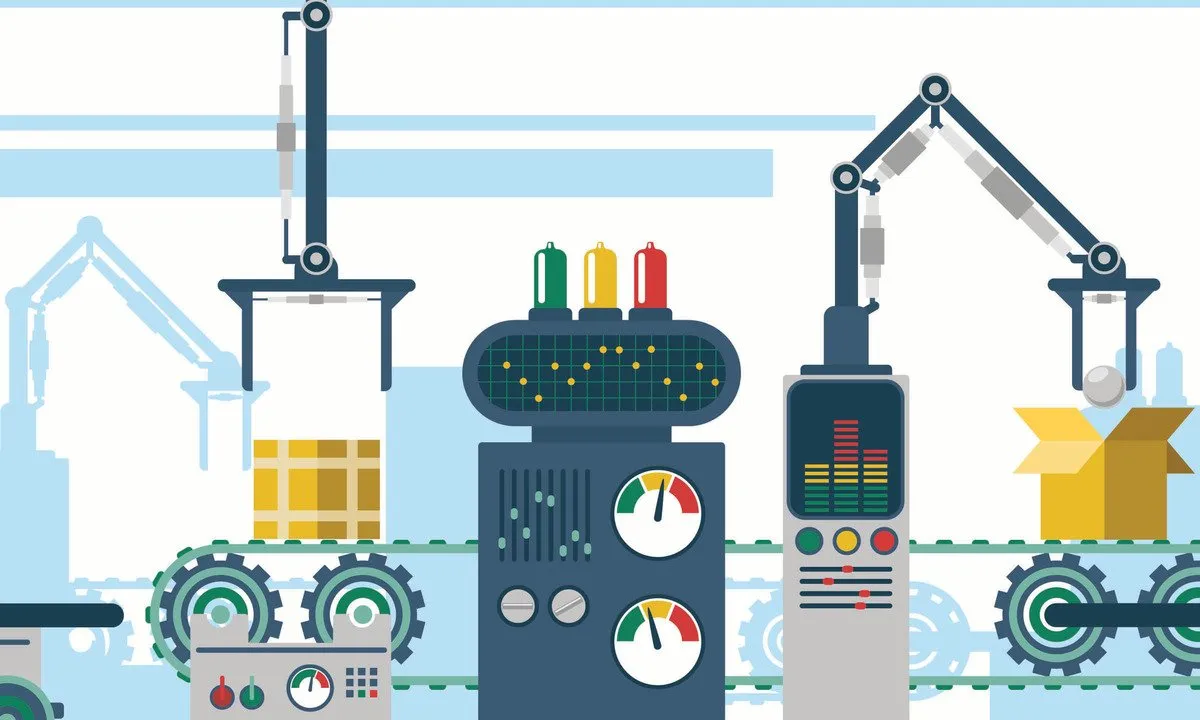
The Construction Industry: The Way Forward 
Gain an introduction to The Construction Industry: The Way Forward ▼
ADVERTISEMENT
Course Feature
![]() Cost:
Cost:
Free
![]() Provider:
Provider:
Coursera
![]() Certificate:
Certificate:
Paid Certification
![]() Language:
Language:
English
![]() Start Date:
Start Date:
3rd Jul, 2023
Course Overview
❗The content presented here is sourced directly from Coursera platform. For comprehensive course details, including enrollment information, simply click on the 'Go to class' link on our website.
Updated in [March 06th, 2023]
This course, The Construction Industry: The Way Forward, provides an introduction to the types of construction projects and the main concern of the productivity challenge in the construction industry. Through case studies, students will learn the industry characteristics and its unique environment that led to such productivity performance, as well as other examples of challenges faced internally in the industry.
In the second part of the course, Professor Odeh will give an overview of 10 mega trends that are changing the way we think about construction. He will discuss the main role of three levels on what needs to be done: an industry collaborative effort and role; a government role; and a company role. Professor Odeh will also touch base on several technological and innovative trends that are rising in the construction industry.
By the end of this course, students will be able to understand the overall history of the construction industry, analyze the optimal ways to respond to the opportunities and challenges brought by current industrial trends, recognize the importance of collaborating with governments and public officials in pursuit of industry transformation, and comprehend the rising technological trends in the AEC industry and give examples of how to apply technology to the construction industry.
[Applications]
Upon completion of this course, participants can apply the knowledge gained to their own construction projects. They can use the understanding of the industry characteristics and its unique environment to identify the optimal ways to respond to the opportunities and challenges brought by current industrial trends. Participants can also use the knowledge of the importance of collaborating with governments and public officials to pursue industry transformation. Additionally, they can apply the rising technological trends in the AEC industry to their own projects.
[Career Paths]
1. Construction Project Manager: Construction project managers are responsible for overseeing the entire construction process from start to finish. They are responsible for managing the budget, scheduling, and ensuring that the project is completed on time and within budget. They must also ensure that all safety regulations are followed and that the project meets all applicable building codes. As the construction industry continues to evolve, construction project managers must stay up to date on the latest trends and technologies in order to remain competitive.
2. Construction Estimator: Construction estimators are responsible for accurately estimating the cost of a construction project. They must be knowledgeable about the materials, labor, and equipment needed to complete the project. They must also be able to accurately estimate the time it will take to complete the project. As the construction industry continues to evolve, construction estimators must stay up to date on the latest trends and technologies in order to remain competitive.
3. Construction Engineer: Construction engineers are responsible for designing and overseeing the construction of buildings, roads, bridges, and other structures. They must be knowledgeable about the materials, labor, and equipment needed to complete the project. They must also be able to accurately estimate the time it will take to complete the project. As the construction industry continues to evolve, construction engineers must stay up to date on the latest trends and technologies in order to remain competitive.
4. Construction Safety Manager: Construction safety managers are responsible for ensuring that all safety regulations are followed on construction sites. They must be knowledgeable about the safety regulations and must be able to identify potential hazards and take steps to mitigate them. As the construction industry continues to evolve, construction safety managers must stay up to date on the latest trends and technologies in order to remain competitive.
[Education Paths]
The recommended degree paths for learners interested in the construction industry are:
1. Bachelor of Science in Construction Management: This degree program provides students with the knowledge and skills needed to manage construction projects from start to finish. It covers topics such as project planning, scheduling, budgeting, and safety. Students will also learn about the legal and ethical aspects of the construction industry. This degree is becoming increasingly popular as the construction industry continues to grow and evolve.
2. Master of Science in Sustainable Construction: This degree program focuses on the environmental, economic, and social aspects of construction. Students will learn about green building techniques, energy efficiency, and sustainable materials. They will also gain an understanding of the legal and regulatory frameworks that govern the construction industry. This degree is becoming increasingly important as the construction industry moves towards more sustainable practices.
3. Doctor of Philosophy in Construction Engineering: This degree program provides students with an in-depth understanding of the engineering principles and practices used in the construction industry. Students will learn about the design and construction of buildings, bridges, and other structures. They will also gain an understanding of the latest technologies and techniques used in the industry. This degree is becoming increasingly important as the construction industry continues to evolve and become more complex.
4. Master of Business Administration in Construction Management: This degree program provides students with the business skills needed to manage construction projects. Students will learn about project management, financial management, and risk management. They will also gain an understanding of the legal and regulatory frameworks that govern the construction industry. This degree is becoming increasingly important as the construction industry continues to grow and become more complex.
Course Syllabus
Introduction
Welcome to the course. In this module Professor Odeh will give an overview of the construction industry and its history. This will be followed by an exploration of the various characteristics of the construction industry globally as well as common internal challenges.Trends in the Construction Industry
The second module highlights ten examples of trends that are reshaping the way we deliver construction projects, such as: aging infrastructure, climate change, sustainability trends and tools, the rise of urbanization, and an aging/shrinking workforce. Along the way, you'll learn the optimal ways to respond to the opportunities and challenges brought by these trends respectively.Transformations Needed: Industry and Government Level
In this module, Professor Odeh discusses the way forward for the construction industry based on his work with the World Economic Forum. Moreover, Professor Odeh will discuss the importance of collaborating with governments and public officials in pursuit of industry transformation.Transformations Needed: Companies Level
This module builds on the previous one by digging deeper into the role of companies at the AEC industry by covering the areas of innovative strategy, dealing with the workforce dilemma and culture, as well as business operations and processes.New and Rising Innovative Technologies
The final module covers rising technological trends in the AEC industry by giving an introduction to topics such as the use of Big Data, machine learning in construction, 3D printing, robotics, virtual/augmented reality, and the rise of Digital Twin. The course concludes by connecting the four industrial revolutions to our modern day construction industry.Pros & Cons

Comprehensive understanding of the construction industry

Insightful analysis of the future of the construction industry

Cutting edge TI approaches for best knowledge and updating skills

Global panorama of construction innovations

Relevant information on the present state and future of the Construction Industry

No lectures by industry professionals

No senior civil engineer and construction manager with 12 years of experience
Course Provider

Provider Coursera's Stats at AZClass
The Construction Industry: The Way Forward provides an overview of the construction industry, its unique environment and the productivity challenges it faces. Through case studies, learners will understand industry characteristics and 10 trends that are changing the way we think about architecture. Professor Ord will discuss the role of industry, government and corporations in addressing industry opportunities and challenges. Participants will also gain an understanding of emerging technology and innovation trends in the AEC industry and how they can be applied to the construction industry. Learners will be able to analyze the best way to address industry opportunities and challenges, recognize the importance of collaboration, and understand rising technology trends in the AEC industry.
Discussion and Reviews
0.0 (Based on 0 reviews)
Explore Similar Online Courses

Business Analytics for Beginners

Practice Object Basics in JavaScript Course

Python for Informatics: Exploring Information

Social Network Analysis

Introduction to Systematic Review and Meta-Analysis

The Analytics Edge

DCO042 - Python For Informatics

Causal Diagrams: Draw Your Assumptions Before Your Conclusions

Whole genome sequencing of bacterial genomes - tools and applications

Forklift Operation Safety

Using Telehandlers


Start your review of The Construction Industry: The Way Forward